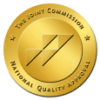People living with a substance use disorder often experience co-occurring mental health conditions that impact their recovery. According to the 2023 National Survey on Drug Use and Health, an estimated 21.5 million adults in the U.S. experienced both a mental illness and a substance use disorder in the past year, highlighting the strong overlap between addiction and mental health conditions.
Dual diagnosis treatment in Tennessee offers through Tennessee Detox Center is the best approach to address both issues simultaneously. Because mental health and substance abuse go hand in hand, treating both issues gives people a better chance at achieving a lasting and fulfilling recovery.

Understanding Dual Diagnosis Treatment
It’s important to understand the difference between co-occurring disorders vs dual diagnosis. Co-occurring disorders related to the mental health disorders that occur alongside addiction. Having a dual diagnosis means you have a mental health condition, like depression or anxiety, along with substance use disorder.
In addiction treatment, co-occurring disorders are somewhat common. Mental health challenges and substance use are deeply connected, and many people beginning their recovery journey may not even realize they have an underlying mental health condition.
Co-occurring disorders develop in two main ways:
-
Addiction leads to mental health symptoms
-
Mental health issues contribute to addiction
Substance-Induced Mental Health Disorders
The first scenario is called a “substance-induced” mental health disorder. For example, someone addicted to alcohol may start to feel isolated, experience sadness, and lose motivation to complete daily tasks. Over time, these symptoms can turn into clinical depression, requiring more than just alcohol treatment. Research shows that people with alcohol use disorder are 3.7 times more likely to also have Major Depressive Disorder, showing just how prevalent co-occurring disorders dual diagnosis rates are.
Self-Medication
The second pathway, known as the “self-medication hypothesis,” occurs when someone with a mental health condition uses drugs or alcohol to manage symptoms. While it may provide temporary relief, it almost always worsens mental health in the long run and leads to a substance use disorder.
These patterns extend beyond anxiety and depression. Any mental health disorder can co-occur with addiction. Some people might not even be aware of their mental health struggles until they begin treatment. Alcohol and drugs often mask symptoms, which may only emerge after sobriety is achieved.
Common Co-Occurring Disorders
A co-occurring disorder refers to any mental health condition that occurs alongside addiction. Some of the most frequently seen disorders in dual diagnosis treatment include:
- Post-traumatic stress disorder (PTSD)
- Generalized anxiety disorder
- Major depressive disorder
- Bipolar disorder
- Panic disorder
- Attention-deficit/hyperactivity disorder (ADHD)
The Substance Abuse and Mental Health Services Administration reports that individuals with these conditions are at a higher risk for misusing substances including: Tobacco Opioids Prescription drugs Stimulants Cannabis Alcohol Hallucinogens For these individuals, dual diagnosis treatment can significantly improve their chances of recovery. Because there are so many different disorders and co-occurring substance use disorders, it’s important for people to look for a trusted dual diagnosis drug treatment center like Tennessee Detox Center. We offer high-quality Dual Diagnosis Treatment Nashville, Tennessee residents can rely on at our luxury inpatient rehab. Our high-end rehab facilities have highly trained and experienced addiction and medical staff ready 24/7. Unlike other residential dual diagnosis treatment centers, we have experience treating a wide range of mental health and substance use disorders, including depression, anxiety, PTSD, bipolar disorder, schizophrenia, and more.

Why Dual Diagnosis Treatment in Tennessee is Essential
If your mental health condition remains untreated while you begin your recovery, the chances of relapse or early dropout increase significantly. Research shows that having a dual diagnosis can lead to issues like:
- More severe symptoms
- Poorer treatment outcomes
- Increased risk of relapse
- Higher rates of hospitalization
Getting sober only to be overwhelmed by untreated mental health symptoms can be discouraging. Many people return to substance use rather than face ongoing mental health struggles without support. Similarly, getting mental health treatment but not having access to confidential and exclusive treatment options for addiction can lead to relapse.
But there is a solution. At Tennessee Detox Center, our dual diagnosis addiction treatment programs address both mental health symptoms and substance use disorder at the same time. Our team of mental health professionals understands both disorders and creates a fully integrated treatment plan to give you the best chance at lasting recovery.
The Substance Abuse and Mental Health Services Administration (SAMHSA) considers dual diagnosis drug treatment the gold standard for treating individuals with co-occurring disorders. Even if you’re unsure whether you have a mental health condition, starting your recovery at a dual diagnosis facility ensures you receive all the support you need for a healthier, happier life in sobriety.
Your journey toward healing begins today.
What to Expect During Dual Diagnosis Treatment
At Tennessee Detox Center, we pride ourselves on offering one of the best dual diagnosis treatment centers in Tennessee. Our comprehensive approach addresses both addiction and mental health across multiple stages of care, ensuring you get the support you need every step of the way. Here’s what you can expect during treatment:
The first step in dual diagnosis treatment is a full assessment to accurately diagnose any mental health conditions. This evaluation often begins during medical detox, but as you progress into inpatient rehab, our team continues to monitor your mental health to ensure that new symptoms are addressed as they arise.
If our team identifies a mental health diagnosis, we create a customized treatment plan tailored to your needs. The plan may include:
- Behavioral therapies that target your specific mental health challenges
- Medication management through a psychiatrist
- Specialized support groups for mental health conditions
- Integrated treatment that aligns with your addiction recovery goals
This personalized approach ensures you receive the exact care you need, right when you need it.
Recovery is a journey filled with both challenges and triumphs. Our team provides continuous support from the moment you arrive until long after your discharge, ensuring that your mental health and addiction treatment evolve as your needs change.
You deserve luxury addiction treatment in Nashville that provides a comfortable and supportive environment for your recovery journey. Our facilities offer well-appointed, private accommodations where you can relax and focus on your healing.
We understand that the early stages of recovery can be physically and emotionally taxing, which is why our rooms are designed to feel like a home away from home. You’ll have all the amenities you need, including comfortable beds, modern furnishings, and access to outdoor spaces for reflection and relaxation. Catered meals, snack and movie rooms, even gaming areas make us one of the most loved dual-diagnosis rehab centers in Nashville.
Start Dual Diagnosis Treatment in Tennessee Today
When you’re ready to begin your recovery, Tennessee Detox Center is here to help. Our dual diagnosis treatment center offers the care and expertise you need to address both addiction and mental health issues. Contact us today at 615-488-5311 or fill out our confidential online contact form for a free, no-obligation consultation. We’re here to help you begin your recovery journey and support you every step of the way.

| Medically Reviewed By: Board-Certified Psychiatrist and Addictionologist |

| Clinically Reviewed By: Board Certified Clinical Social Worker |
Did you know that your insurance plan may cover medical detox?

Elevating Recovery: Unmatched Amenities & Individualized Support

State-Of-The-Art Facility

Luxury Bedrooms

Dedicated Private Chef

Fun and Games

Clinician & Medical Owned & Operated

Family Therapy Sessions

Weekly Outings

Twice‑Weekly Individual Therapy

Small Groups, Big Recovery
Get Family Support Now
Supporting Families Through Recovery
We understand addiction affects the whole family. Our comprehensive family program helps rebuild trust and restore relationships.
Weekly Family Therapy Sessions
Educational Workshops
Support Groups
Communication Skills Training
Get Family Support Now



